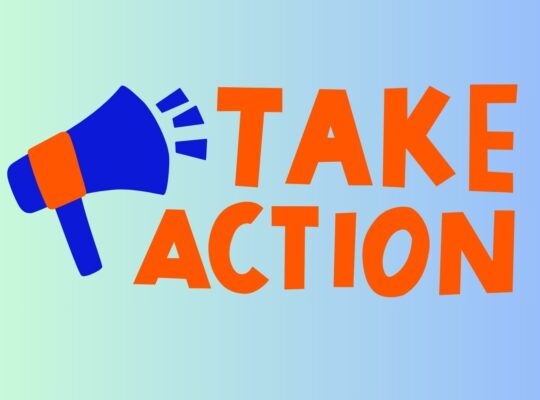Journaling is something that a lot of adults dismiss as a childish habit. A young teen, doodling hearts and writing about the latest major crush. When adults talk about journaling it commonly elicits an eye-roll in response.
Journals are for young people to work through their hormones and figure themselves out. Those are indeed two very good reasons to journal, it’s certainly not the only reasons to do so. Nor are teens the only ones who can or should be journaling.
Think of your journal as your opportunity to express yourself. Something that will allow you to empower yourself to deal with complex emotions with grace and humor. However, you won’t enjoy the many benefits of journaling if you aren’t doing it effectively.
Effective Journaling
Journaling effectively is a practice that will allow and encourage you to achieve your goals, as well as improve the quality of your life. It looks different for everyone, but generally, people who journal effectively experience a positive boost in their life. Journaling helps you connect your behaviors with your feelings and thoughts, and helps you gain a better insight into who you are as a person. Your journal is the relationship you build with yourself and your mind.
How can the humble journal have such an impact on your life? Isn’t it just scribbling thoughts onto the page of a notebook? It might appear that way, but it requires you to apply the analytical portion of your brain, as well as the creative side. You cannot underestimate the power of creativity to boost your well-being. There is a plethora of benefits to it, but before we discuss those, let’s take a look at how to ensure you are journaling effectively.
- Have a dedicated journaling spot. It should be a retreat that is free from distractions and private.
- Your aim should be to write on a daily basis, though you aren’t limited to just once a day. If you have the time and inclination to write more often, then feel free to do so.
- Allow yourself reflection time following a journaling session.
- If you journal to deal with trauma, you don’t have to pour out all of those details. You can journal about what feels appropriate for you in that moment.
- The structure isn’t particularly important, just do what feels right for you.
- Your journal is for you. You don’t have to share it with anyone.
40 Benefits Of Journaling
1| Understanding of Self
There is no better way to learn about yourself than to keep a written record of your daily thoughts and feelings. It allows you to review your time and recognize patterns and behaviors that may be negatively impacting you. It’s your chance to search deep within yourself to find out what you value, what matters, and what you want out of life.
2| Tracking Small Changes
If you have ever learned how to play an instrument, then you will understand this. You know you’re terrible when you first start. You don’t tend to notice the incremental improvements you make as you practice and get better. Yet, you are improving daily. The same can be said for maintaining a journal. You are benefiting from incremental changes in your vocabulary and grammar. A journal will show you a record of those small changes that you wouldn’t have noticed otherwise.
3| Awareness
As you build your journal, you can cast an eye back on the many topics that you have chosen to write about. When you allow yourself to write freely, reading back allows you to take a look at the feelings and issues that you poured your heart out over. This is where you will gain an insight into yourself. It opens the doors to awareness and it’s an opportunity to learn things about yourself you didn’t realize you didn’t know. You might not have realized you feel guilty about spending time at a job you hate and missing out on hanging out with your kids. But it was there in the back of your mind all this time.
4| Increases Creativity
When you learn how to play an instrument, the increased neural activity in your brain triggers the thought process to connect in different ways. The same can be said for the process of writing, even if it isn’t in a creative capacity. Journaling makes you more creative. You may find yourself doodling poetry or thinking of lyrics when that wasn’t something you did before. You may look at mundane tasks in a different light as well. Either way, journaling will help you improve as a writer and also improve your language and communication skills.
5| A Safe Space
We all need a safe haven to escape to and not all of us can afford the luxury of regularly visiting a therapist. Journaling is a safe space to let your emotions and frustrations run wild on paper. You don’t need to keep it all bottled up.
6| Processing
As you write you are processing your feelings. You can look back on those difficult times and interpret your raw emotions more objectively. The end of a relationship, missing out on a job promotion, losing your job… they are all negative life experiences. They hurt. When you look back at what you wrote about them in the heat of the moment, you can view it in a new light. It’s this fresh perspective that will highlight just how beneficial the journaling process was to your healing from that event.
7| Stress Relieving
This one is a no-brainer! Of course, you are relieving stress by pouring out all of your emotions, thoughts, and feelings. You will notice this benefit immediately. Try it write out. Think of something that happened to you today and caused frustration. Write it out. You’ll purge your body of all that pent-up anger and stress you’ve been holding onto. It’s a wonderful feeling.
8| Offers Direction
It might not seem like journaling is providing you with a bit of direction, but it is. You might be free writing, but from the chaos comes a direction. You will start to see a pattern emerge in your writings that will highlight your truths. It’s all about asking yourself the right questions, so look at your journal as the tool that it is.
9| Problem Solving
It is much easier to solve a problem when you can process it appropriately. Journaling is just that. You are looking at a problem or goal and determining how best to solve or proceed. As you write you are processing and exploring problems and finding solutions to them. It allows you a chance to take a step back and look at the reality of a situation. When you’re writing a journal, you are very much in the moment as you do so, that is what will allow you to improve your problem-solving skills.
10| Relief
Often, life feels like a constant battle. You are constantly fatigued and wondering if everyone else is having the same struggles you are. Journaling provides a relief from that battle. You’re indulging in one-way communication to process your thoughts and feelings on a subject. This is going to buoy you as you head into “battle” and prepare you to communicate better and find common ground. When your emotions are running high so are your stress levels, that makes it difficult to communicate effectively.
11| Finding Your Meaning
Journaling shows you your meaning, why you’re living, when you’re wallowing, and when you need to make changes. Life can take on new meaning when you allow your own words to light your path. It will highlight the actions you took to get to where you are right now and how you can effect change to your future path.
12| Improved Focus
Journaling is a form of meditation. You escape somewhere private and write out your innermost thoughts and feelings. This brief moment of mind you dedicate to your day will provide you with peace of mind, and focus.
13| Sharper Spirituality
When you write in your journal you are allowing all of your experiences and energy to flow. This is a particularly helpful exercise when it comes to getting in touch with your spirituality. You don’t have to be religious to get in touch with your spiritual side. It’s really about having a greater understanding of the universe and your place within it.
14| Letting Go
When you review your past journaling, it provides you with direction. It’s also an incredibly effective way to let go of negative feelings and experiences from your past. You can choose to keep the pages and reflect on your negative experiences. Or, you can tear them up and throw them away. That’s what we should be doing with hate and negativity.
15| Finding Freedom
In expressing yourself, you are embracing the freedom to be who you are. That freedom can only come from a deeper sense of self.
16| Career Enhancing
How does journaling enhance your career? Well, think of all the benefits you have already been enjoying from your new habit. Band them all together and it’s no wonder your working life will see an increase. So far, you have improved your communication skills, relieved stress, learned how to manage your emotions, and all of that is going to make you a much more pleasant, productive person.
17| Dream Exploration
Your journaling has allowed you to explore your emotions, thoughts, and ideas. It’s also letting you explore your dreams (and nightmares). Often, our dreams are telling us something, but they seem so weird we write them off as nonsense. Try paying attention to the messages they might be trying to communicate to you. You may soon find there are dots to connect between your dreams and what you journal about.
18| Mind Clearing
When you write out your thoughts daily it’s a helpful exercise in clearing your mind of clutter. Expressing yourself is beneficial because it provides you with a release.
19| Better Planning Skills
A journal is an excellent way to help you organize and plan more efficiently. It might not seem much, but a place to plan your schedule or make a list is helpful.
20| Greater Communication
How can the written word improve your verbal communication skills? The process of journaling helps you improve your ability to express yourself. Being able to look at your own words in front of you on paper can also help you identify, therefore correct, communication issues you may have. The more you journal the more effective you will be at communicating with others.
21| Identifying Goals
Effective journaling is an opportunity for you to reflect meaningfully. When you reflect on your life in such a manner it allows you to identify what you’d really like to achieve in life. It isn’t always easy to identify your goals. We often allow the expectations of others to weigh heavily on our shoulders. We chase the goals that others want for us instead of reflecting on what we want. Your journal is a safe space for you to explore the goals you’re pursuing and whether they are the right ones.
22| Self-Discipline
When you carve out time to write daily you are building your self-discipline. The number one killer of productivity is procrastination and to journal daily you do so by overcoming procrastination.
23| Improved Focus
It requires focus to journal. There’s a level of concentration necessary to take pen to paper and articulate your thoughts, even if you are free-writing and letting it all pour out. When you journal regularly, you are improving your focus overall.
24| Habit Breaking
Your journal can be a space for you to list your bad habits and work on breaking them. You can journal about your progress and as you track the process, you will find it easier to break bad habits. Often, we do our bad habits out of routine, never realizing we do them. By bringing awareness to your bad habits it will allow you to overcome them.
25| Relieving the Overwhelm
Life can be overwhelming, and journaling can provide you with an escape from the overwhelm life throws at you.
26| Present
It’s difficult to find yourself in the moment when you’re caught up in your unprocessed emotions. Instead of carrying those around in your head, journaling provides you with an outlet to process them. Which means it’s much easier for you to be present.
27| Deepest Desires
We all think about the future and what we wish ours to look like. We think about what we’d like to have, what we’d like to do. A journal is a good place to put all these desires. It’s also a place for you to come up with concrete ideas and plans on how to make sure your desires come to fruition.
28| Lessons Learned
The biggest lesson that you can learn is that your past shouldn’t dictate who you are. However, it can play a role in who you become. As you look back on your memories, whether they make you laugh or cry, they should always provide you with a lesson. Keeping a journal will allow you to look back on past experiences to find a lesson to walk away with.
29| Purging Pent-Up Frustrations
While technology offers us a place to escape the real world, the problem is we escape into a world that is just as fraught as reality. So, when you choose to escape into social media, you’re likely ramping up your anger and frustration. Your journal is a place for you to truly purge the pent-up frustrations you have been dealing with in life. It’s a productive way to channel your feelings.
30| Gratitude
Gratitude is important and it’s easy to lose sight of the things we have to be grateful for. Your journal is an excellent place to inject more gratitude into your life. Make a point of noting at least three things you’re grateful for daily. This may feel painful at first, especially if you tend to be a more pessimist person. Just take a look around – you will soon see that you have so much to be thankful for. As you do this, you will start to become a more naturally optimistic person. You will start to look for the silver lining in any and every situation.
31| Improves Empathy
As you get to know yourself, you also start to recognize the fallibility of others. It’s much easier to empathize with others when you recognize that they are walking their own journey just like you are. The troubles you experience, the feelings of frustration and hurt are part of the human condition. We’re all just trying to get through each day.
32| Relationship Healing
As you process your emotions and learn to better communicate through journaling it’s going to positively impact on your relationships. Not just your romantic relationships, even the relationships with your family, friends, and colleagues. Things will improve as you learn to park your emotions and respond appropriately when communicating with others. Your increase in empathy will also play an important role in building and healing relationships.
33| Improves Self-Trust
As you get to know yourself and gain a deeper understanding of who you are, you’re building trust with yourself. You are improving your ability to make sound decisions. You’re less likely to engage in self-sabotaging behaviors.
34| A Truer You
Something we all do is wear masks. While it’s sometimes appropriate to adopt a persona in certain situations (like when you’re at work versus at home), you should be able to be your true self. The process of journaling strips all that pretense back and allows you to get to know your true self.
35| Troubles
It’s fairly common for us to carry trauma from our childhood into our adult lives. Often, we don’t even realize the trauma is present. It manifests in a variety of ways and it isn’t until you take time to journal that it starts to make itself known to you. You cannot underestimate how powerful these traumas and troubles can be in your life. You are being influenced by this pain that you have been carrying. Writing in a journal is your chance to make peace with this trouble and let go of the trauma.
36| Clarity
Of self. Of thoughts. Journaling offers you clarity on just about any issue that life has presented you with. You can journal to clarify your emotions, feelings, and thoughts.
37| Finding Humor
Laughter is the best medicine and journaling can often help you see the funny side of a situation. You may start writing in anger, only to find yourself laughing by the time you reach an end. We often react in the moment and our emotions are fueled by our feelings rather than reality. When we take a moment to look at the reality of a situation, we see the overreaction for what it was. Laughing at yourself is good for the soul.
38| It’s Empowering
What better way to motivate yourself than by writing in a journal about what you want from life and how you can make it happen. Journaling is empowering.
39| There’s No Judgment
This isn’t just beneficial to how you treat yourself, it’s also beneficial to how you perceive and treat others. When you journal, you do so with no judgment. Taking off your judgmental glasses and allowing yourself to look at things objectively will positively influence many aspects of your life.
40| Revealing
As you get to know yourself you will recognize the many incredible traits that make you who you are as a person. It will also highlight areas that could use a little work. Ultimately, as you journal you will reveal more and more about yourself and your life. You will learn more about your thought process, and how it is influenced by your feelings and other factors in your life. This will only benefit your journey for personal development and self-improvement.







